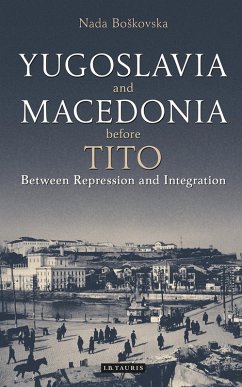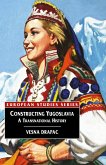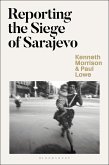Held together by apparatchiks and, later, Tito's charisma, Yugoslavia never really incorporated separate Balkan nationalisms into the Pan-Slavic ideal. Macedonia - frequently ignored by Belgrade - had survived centuries of Turkish domination, Bulgarian invasion and Serbian assimilation before it became part of the Yugoslav project in the aftermath of the First World War. Drawing on an extensive analysis of archival material, private correspondence, and newspaper articles, Nada Boskovska provides an arresting account of the Macedonian experience of the interwar years, charting the growth of political consciousness and the often violent state-driven attempts to curb autonomy. Sketching the complex picture of nationalism within a multi-ethnic, but unitarist state through a comprehensive analysis of policy, economy, and education, Yugoslavia and Macedonia before Tito is the first book to describe the uneasy and often turbulent relationship between a Serbian-dominated government and an increasingly politically aware Macedonian people.
Concerned with the question of integration and political manipulation, Boskovska gives credence to voices critical of Royal Yugoslavia and offers a fresh insight into domestic policy and the Macedonian question, going beyond traditional high politics. Broadening the spectrum of discussion and protest, she reveals the voices of a people protesting constitutional and electoral fraud, the neglect of local needs and state machinations designed to create a satellite province.
Concerned with the question of integration and political manipulation, Boskovska gives credence to voices critical of Royal Yugoslavia and offers a fresh insight into domestic policy and the Macedonian question, going beyond traditional high politics. Broadening the spectrum of discussion and protest, she reveals the voices of a people protesting constitutional and electoral fraud, the neglect of local needs and state machinations designed to create a satellite province.









